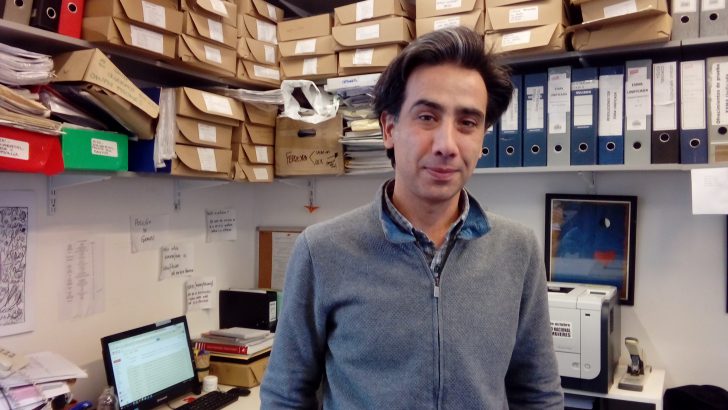Carlos Arce Jiménez hails from Córdoba, Spain, where he coordinates the Migrations Department for the Asociación Pro-Derechos Humanos de Andalucía. Its location on the map of Europe makes the southern border of Andalucía the closest geographic point to Africa and the preferred route of access to the continent. Its coasts are also a testament to the refugee and migrant humanitarian crisis taken to an extreme by way of a migration policy that prioritizes security over rights.
According to the report Human Rights on the Southern Borber 2017 (available in Spanish), 295 people died or disappeared in 2016 while attempting to cross the Mediterranean into Spain. The number of deaths indicates a higher mortality rate for Spain in comparison to other European countries: choosing to enter through Spain increases the risk of death. Last year alone, 5083 men, women and children drowned in the sea that links the coasts of Europe, Asia and Africa. Most of these deaths were due to migration policies that make migration conditions unsafe.
–How does migration policy support European political processes?
We must differentiate between migration policies and border policies. There is uniformity in border policies: there are no differences between progressive, liberal or right-wing governments. Border control involves a security perspective. However there can be more of a difference in policies of integration, fostering of intercultural coexistence and in public discourse.
–How does this security policy impact migration processes?
What this policy does is fence off and reduce the legal and safe path to nearly nil, even for people who qualify point by point as refugees, according to the 1951 Geneva Convention relating to the Status of Refugees. This channels all those flows – both those denominated economic migration as well as refugees – toward irregular and unsafe routes, where the violation of human rights is on the front lines.
At the same time, the actors that security policy claims to want to combat – persons and organizations that profit from the irregular route – find the perfect space thanks to these policies, because in closing the legal and safe routes, the only ones left are irregular and unsafe. They are achieving the opposite of what official discourse claims to seek. Just this week, Spain’s Minister of the Interior told Parliament that neither the Spanish state nor the European Union are to blame for what pushes people to migrate, nor for the reasons why they choose dangerous migration routes.
–How should a migration policy with a rights-based perspective at the border look?
A fundamental element is based on the current legal framework, respect for international human rights law and the right to asylum. This should be the bedrock. A few years ago, this framework was unknown and violated from a practical standpoint, but we are now at a stage in which even official public discourse ignores the legal framework.
–Is this some sort of state of exception?
Yes, and it goes on. This turns the exception into the rule. So the first thing would be to return to the legal framework. Then, respond to the reality of migration flows, which tend to self-regulate. The main impulse behind migration is improved quality of life. So when people do not find those conditions or cease to have them, they migrate again. This is exactly what has happened in Spain: whenever there is an economic crisis, the population starts to fall. This reality must be taken into account and a legal, safe and reasonable route enabled in order for people to come for work and economic reasons and be able to do so without risking their lives. If migration dynamics are left to themselves, the strong component of self-regulation will come into play. No one has stayed in Spain to starve in the streets; they’ve all migrated again.

